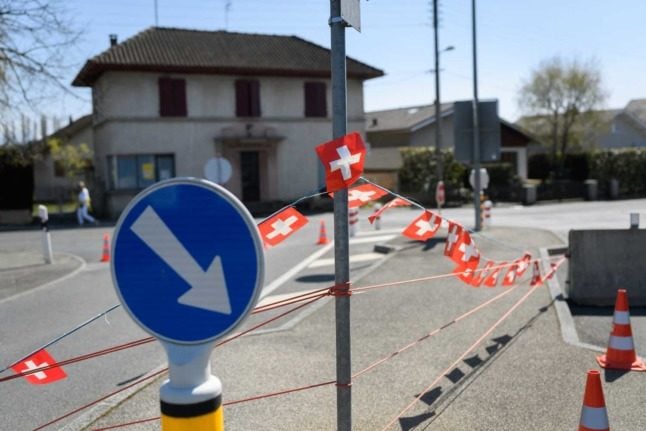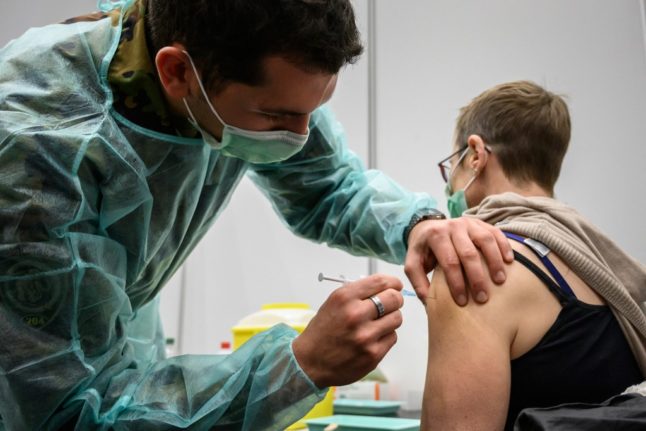A central component of Switzerland’s return to normal has been its vaccination campaign.
In order to keep Covid case numbers as low as possible, the Swiss government has made it easier for vaccinated travellers to enter to encourage people to get vaccinated before they come.
But while those who have been vaccinated will have an easier time of things in most cases, it is not impossible for the unvaccinated to enter.
Keep in mind that everyone arriving via air – regardless of vaccination status – will need to fill out an electronic entry form. Those arriving by land will not need to complete the form, regardless of where they are arriving from.
READ MORE: Here is the form you need to enter Switzerland
Here’s what you need to know.
What does fully vaccinated mean?
Despite the vaccination rollout accelerating all over the world, plenty of people are still waiting to get the vaccine.
Some have only received one dose, while some have not had the jab yet at all.
There are also some people who for various reasons are unable to get vaccinated.
For Swiss health authorities, “fully vaccinated” means both vaccine doses. The only exception to the two-dose requirement is the Johnson & Johnson vaccine, which is given in a single shot.
You must be able to prove your vaccination status with a EU-recognised Covid Certificate. If you don’t have one, or if you come from a country that is not issuing these health passes, then you should have an official proof of vaccination, which includes your name, date of birth, the name of the vaccine, batch numbers, and dates of first and second vaccination.
You are considered to be immune for up to 12 months after receiving your second shot.
Provided you can present this document and you travel at least 14 days after your second dose (or one dose, in case of Johnson & Johnson) — which is when immunity to coronavirus is believed to fully kick in — you can come to Switzerland with no restrictions.
You must be vaccinated with one of the vaccines approved by the European Union, Swissmedic and WHO, which currently are Moderna, Pfizer / Biontech, AstraZeneca, and Johnson & Johnson, along with the two Chinese vaccines Sinopharm and Sinovac.
Sputnik V – the Russian vaccine – is currently not approved for entry in Switzerland.
UPDATE: Which vaccines are accepted for entry into Switzerland?
Can you enter Switzerland without being fully vaccinated?
If you only had one dose of the two-dose vaccine, or 14 days haven’t elapsed since the second shot, or if your vaccine is not one of those mentioned above, or if you haven’t been inoculated at all, then you must fulfil other conditions.
One important consideration is where you are arriving from.
From June 26th onwards, Switzerland introduced the ‘variant of concern’ classification for countries where mutations of the virus were spreading. The current list of variant of concern countries includes India, the United Kingdom and Nepal.

Image courtesy Federal Office of Public Health
In case you don’t come from one of the “high-variant” countries, you must have a negative PCR or antigen test result.
If you do not have this, then you’ll need to have taken within 48 hours of arriving in Switzerland.
If you do come from one of the three countries mentioned above and are not vaccinated, then you must also quarantine for 10 or seven days, which pretty much defeats the purpose of a vacation.
Are there any other options besides vaccination and testing?
Those who have had the virus recently and have recovered can also enter.
If you recovered from Covid within the past six months — and can prove it with official documents — you can come to Switzerland without any obligation to test or quarantine.
UPDATED: How do you prove you’ve recovered from Covid in Switzerland?
The same rules — that is, either the vaccination / immunity certificate, or negative test / quarantine — apply, even if the traveller arrives from a high-variant area like the UK.



 Please whitelist us to continue reading.
Please whitelist us to continue reading.
Member comments